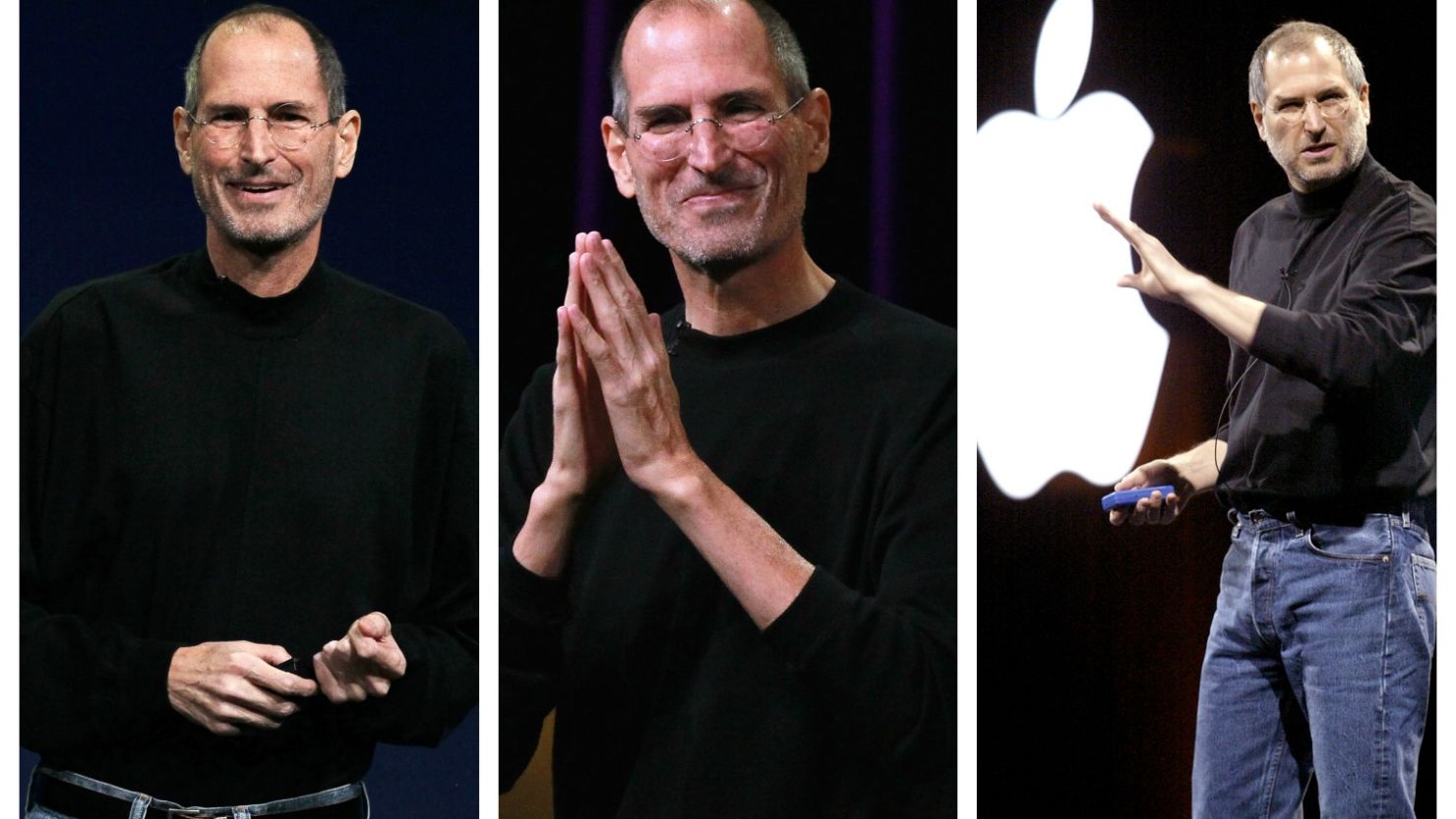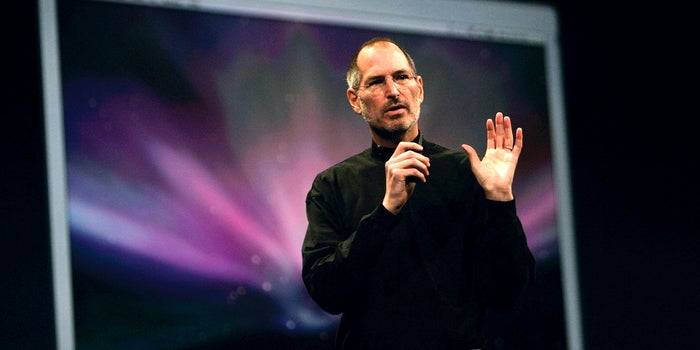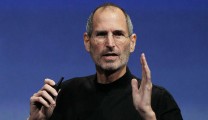Who Was Steve Jobs?
Before answering the question, “What was Steve Jobs’ leadership style?” Let’s cover some critical details about the man behind Apple.
Steve Jobs was born on February 24, 1955, in San Francisco, California. He was an American business owner who is best known for being the co-founder, chairman, and CEO of the world-renowned tech company Apple.
He also served as Pixar’s chairperson and majority shareholder and as a member of The Walt Disney Company’s board of directors after it acquired Pixar.
In 1985, Jobs left Apple after a long power struggle with the company’s board and then-CEO John Sculley and founded NeXT. He returned over a decade later, in 1997, and revived the company when it was on the verge of bankruptcy.
During the next several years, he was responsible for Apple’s famed “Think different” slogan, as well as the development of tools like the iMac, iPod, iPhone, and iPad.
In 2003, Jobs was diagnosed with a pancreatic tumor and passed away eight years later in 2011.
What truly distinguished Steve Jobs and set him apart from other business leaders was his unique managerial style and leadership skills. His approach to leadership was almost unparalleled, making it a central aspect of his identity and success.
What Leadership Style Did Steve Jobs Use?
The leadership style of Steve Jobs is typically described as autocratic.
According to Richard Branson in an article published in The Telegraph, “Steve Jobs…had a meticulous eye for detail, and surrounded himself with like-minded people to follow his lead.”
Steve Jobs’ Leadership Style Defined
Steve Jobs’ autocratic, innovative leadership was undeniably effective, but it’s also controversial.

Here’s a breakdown of how autocratic leadership looks:
- Minimal input from others: Autocratic leaders make most – if not all – decisions. They typically aren’t interested in feedback and have more of a “my way or the highway” attitude.
- Highly structured work environment: Autocratic leaders thrive in a highly structured work environment (specifically, a structured environment that they developed and implemented).
- Clear rules and processes: A critical component of a structured work environment, which autocratic leaders love, is a clear set of rules and processes. Everyone knows their role, what’s expected of them, and how they’re expected to do it. They also know who gets the final say at the end of the day.
Autocratic leadership can be beneficial because it allows for faster decision-making and increased team productivity.
However, it can also be problematic in some situations because it can create conflict, particularly when someone else is vying for the leadership role, and can cause subordinates to feel devalued.
Steve Jobs’ Leadership Qualities
What leadership styles and qualities made Steve Jobs an autocratic leader?
Here are some examples of leadership qualities he possessed that make it pretty clear he belongs under the autocratic leadership umbrella:
He Was Demanding
Steve Jobs expected a lot from the people who worked for him.
He set a high bar for his employees and made it clear that they were supposed to meet it if they wanted to keep their jobs. He required employees to work long hours, sacrifice their personal lives to help the company achieve specific goals, and tolerate harsh criticism.
He Was Innovative
When people think about innovative leaders, a picture of Steve Jobs almost always appears in their minds. Few people can compete with Jobs when it comes to creativity and thinking outside of the box. He had ideas that no one else could fathom, and he wasn’t afraid to share and work toward achieving them.
He Was Passionate
In addition to being innovative, Steve Jobs was passionate. He loved his work and loved creating something out of nothing.
Jobs also believed in his vision and his ability to turn ideas into realities. His passion meant that he wasn’t easily deterred, even when the company faced lawsuits and severe financial setbacks.
He Was Perfectionistic
Steve Jobs strove for perfection in all that he did – and he expected his employees to do the same. He was committed to making every product Apple put out flawless, and he understood that that meant focusing on the details, no matter how tiny they might seem to someone else.
Even something as minor as a slight colour mismatch could not escape Jobs’ critical eye.
He Was Inspiring
When they learn about how critical Steve Jobs was, as well as how perfectionistic and demanding he could be, some people wonder why someone would want to work for him. The answer is simple: Because he was inspiring.
Jobs’ passion was infectious, and he inspired others to go after their dreams, stay committed to their visions, and not take “no” for an answer.
He Was Reluctant to Delegate
Steve Jobs, like many autocratic leaders, wasn’t a big fan of delegation. He trusted his own judgment and abilities more than others, which meant he was often wary of assigning tasks to others when he thought he could do the job better himself.

He Led by Example
Jobs didn’t just have high expectations for his employees. He also had high expectations for himself and held himself to the same standard. He didn’t tolerate half-measures in his own work, which is why he was so critical of others and expected them to follow in his footsteps.
He Separated Creatives from Critics
Jobs once said, “Gather ten smart people into a room, and one or two will be creative, two are great at solving problems, [and] the rest are critics. Keep the creatives away from the critics.”
He understood the importance of criticism when it comes to doing great work. However, he also knew that creatives needed space to experiment, think outside of the box, and fail without being heavily scrutinised while they were in the process of creating.
He Wasn’t Afraid to Subtract
When Steve Jobs came back to Apple in 1997, he cut the number of projects the company’s staff were working on. He understood the power of doing more with less and subtracting things that weren’t working or were taking people away from projects that could lead to better long-term outcomes.
He Wasn’t Afraid to Stand Out
Jobs truly embodied the Apple motto, “Think differently.” He thought differently, and he was different, and he wasn’t afraid of that. He was willing to do what others thought was impossible, move forward with a vision that others didn’t understand, and do what was necessary to create devices that were new and game-changing.












Replies to This Discussion